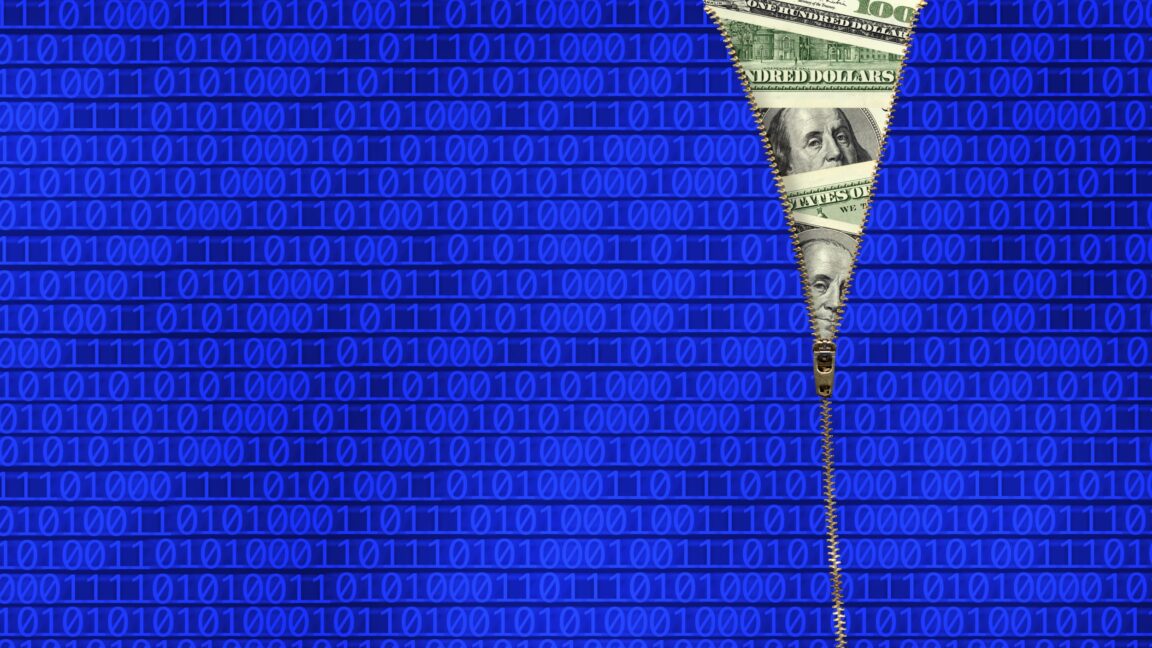
Court upholds New York law that says ISPs must offer $15 broadband
New York obtains significant win for states' ability to regulate broadband.
Court upholds New York law that says ISPs must offer $15 broadband
New York obtains significant win for states' ability to regulate broadband.
JON BRODKIN - 4/26/2024, 5:10 PM
Enlarge
Getty Images | Creativeye99
60
A federal appeals court today reversed a ruling that prevented New York from enforcing a law requiring Internet service providers to sell $15 broadband plans to low-income consumers. The ruling is a loss for six trade groups that represent ISPs, although it isn't clear right now whether the law will be enforced.
New York's Affordable Broadband Act (ABA) was blocked in June 2021 by a US District Court judge who ruled that the state law is rate regulation and preempted by federal law. Today, the US Court of Appeals for the 2nd Circuit reversed the ruling and vacated the permanent injunction that barred enforcement of the state law.
For consumers who qualify for means-tested government benefits, the state law requires ISPs to offer "broadband at no more than $15 per month for service of 25Mbps, or $20 per month for high-speed service of 200Mbps," the ruling noted. The law allows for price increases every few years and makes exemptions available to ISPs with fewer than 20,000 customers.
"First, the ABA is not field-preempted by the Communications Act of 1934 (as amended by the Telecommunications Act of 1996), because the Act does not establish a framework of rate regulation that is sufficiently comprehensive to imply that Congress intended to exclude the states from entering the field," a panel of appeals court judges stated in a 2-1 opinion.
Trade groups claimed the state law is preempted by former Federal Communications Commission Chairman Ajit Pai's repeal of net neutrality rules. Pai's repeal placed ISPs under the more forgiving Title I regulatory framework instead of the common-carrier framework in Title II of the Communications Act.
2nd Circuit judges did not find this argument convincing:
Second, the ABA is not conflict-preempted by the Federal Communications Commission's 2018 order classifying broadband as an information service. That order stripped the agency of its authority to regulate the rates charged for broadband Internet, and a federal agency cannot exclude states from regulating in an area where the agency itself lacks regulatory authority. Accordingly, we REVERSE the judgment of the district court and VACATE the permanent injunction.
Be careful what you lobby for
The judges' reasoning is similar to what a different appeals court said in 2019 when it rejected Pai's attempt to preempt all state net neutrality laws. In that case, the US Court of Appeals for the District of Columbia Circuit said that "in any area where the Commission lacks the authority to regulate, it equally lacks the power to preempt state law." In a related case, ISPs were unable to block a California net neutrality law.Several of the trade groups that sued New York "vociferously lobbied the FCC to classify broadband Internet as a Title I service in order to prevent the FCC from having the authority to regulate them," today's 2nd Circuit ruling said. "At that time, Supreme Court precedent was already clear that when a federal agency lacks the power to regulate, it also lacks the power to preempt. The Plaintiffs now ask us to save them from the foreseeable legal consequences of their own strategic decisions. We cannot."
Judges noted that there are several options for ISPs to try to avoid regulation:
If they believe a requirement to provide Internet to low-income families at a reduced price is unfair or misguided, they have several pathways available to them. They could take it up with the New York State Legislature. They could ask Congress to change the scope of the FCC's Title I authority under the Communications Act. They could ask the FCC to revisit its classification decision, as it has done several times before But they cannot ask this Court to distort well-established principles of administrative law and federalism to strike down a state law they do not like.
Coincidentally, the 2nd Circuit issued its opinion one day after current FCC leadership reclassified broadband again in order to restore net neutrality rules. ISPs might now have a better case for preempting the New York law. The FCC itself won't necessarily try to preempt New York's law, but the agency's net neutrality order does specifically reject rate regulation at the federal level.
Ruling important for state authority, professor says
Stanford Law Professor Barbara van Schewick said today's ruling provides states with important protections in the event that the FCC ever deregulates broadband again. "Today's decision means that if a future FCC again decided to abdicate its oversight over broadband like it did in 2017, the states have strong legal precedent, across circuits, to institute their own protections or re-activate dormant ones," she said.Combined with other rulings like the one upholding California's net neutrality law, van Schewick says that "case law is now abundantly clear that if the FCC eliminates its authority over broadband by miscategorizing it as a Title I information service, then the states can step in."
Andrew Jay Schwartzman, senior counselor for the Benton Institute for Broadband & Society, said that "today's decision holds that FCC regulations do not interfere with the states' ability to ensure that their residents have affordable access... This decision provides a roadmap for other states to follow to join New York in doing what the federal government has thus far failed to do."
The dissenting judge in today's 2nd Circuit ruling, Richard Sullivan, wrote that the state law "is field-preempted because the Communications Act preempts all rate regulation of interstate communication services. By its text, the Communications Act grants the FCC authority over 'all interstate' communication services—save for a limited set of state-law prohibitions—while leaving to the states the power to regulate intrastate communications."
States have the power to enforce consumer protection laws. But because "rate regulation was not one of those traditional spheres of state authority, only the FCC retains the authority to regulate rates of interstate communications," he wrote.
Lobby groups disappointed
Sullivan also argued that the appeals court lacks jurisdiction. "After New York was preliminarily enjoined from enforcing the ABA, it stipulated to judgment against it, and then appealed that stipulated judgment. This was a strategic move," Sullivan wrote.This tactic "is generally not permitted as a shortcut to appellate review," Sullivan wrote. However, the majority decided that the court has "appellate jurisdiction because the district court plainly rejected the legal basis for New York's preemption defenses, all claims have been disposed of with prejudice, the stipulation was designed solely to obtain immediate appellate review and does not circumvent restrictions on our appellate jurisdiction, and New York expressly preserved the right to appeal."
The lobby groups that sued New York issued a joint statement saying they "are disappointed by the court's decision and New York state's move for rate regulation in competitive industries. It not only discourages the needed investment in our nation's infrastructure, but also potentially risks the sustainability of broadband operations in many areas."
The groups that sued New York are the New York State Telecommunications Association; CTIA; America's Communications Association (formerly the American Cable Association); USTelecom; NTCA-The Rural Broadband Association; and the Satellite Broadcasting and Communications Association. The groups could seek a rehearing before all 2nd Circuit judges or appeal to the Supreme Court. They could also seek preemption on the basis of the FCC's more recent decision to classify broadband under Title II.


